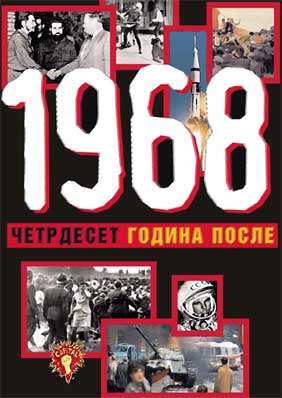Југословенско-совјетски односи у светлу војне интервенције у Чехословачкој 1968. године
The Yugoslav-Soviet Relations in the Light of the Military
Intervention in Czechoslovakia in 1968
Author(s): Dragan Bogetić
Subject(s): Diplomatic history, Political history, Post-War period (1950 - 1989)
Published by: Institut za noviju istoriju Srbije
Summary/Abstract: The military intervention of five Warsaw Pact countries in Czechoslovakia in 1968 led to sudden deterioration of the Yugoslav-Soviet relations and called for the revamping of Yugoslav foreign-political strategy.
Fearing the rerun of the Czechoslovak events on the streets of Belgrade, Tito and his aides in their increasingly frequent public speeches severely criticized Moscow’s policy toward Czechoslovakia, expressing their unfaltering determination to defend the independence of their country with all means, should it be endangered. They estimated that the future approach of the USSR to Yugoslavia would directly depend on Soviet assessment of the internal situation in Yugoslavia and the behaviour of Western powers in the case of possible Soviet attack on Yugoslavia. Neither seemed encouraging. Mass student demonstrations and increasingly fierce frictions among the Yugoslav republics, were assessed as factor which could encourage Soviet officials to intervene in Yugoslavia. The extremely mild reaction of the USA to the aggression on Czechoslovakia was similarly assessed. Such a reaction was explained in the Belgrade political circles as the possible consequence of American-Soviet deal on division of spheres of interest in Europe, with Yugoslavia falling into the family of socialist, pro-Soviet states, and thus a possible object of „brotherly aid of the USSR”, lent with the aim of preserving the endangered achievements of socialism.
However, the mutual interest forced Yugoslav and Soviet offi cials to reach a mutually acceptable compromise. It boiled down to a simple political formula, agreed upon at the meeting between Tito and Gromiko at Brioni in September 1969. The Yugoslav side agreed to stop its anti-Soviet campaign over Czechoslovakia and Soviet endeavours to discipline its camp, and the Soviet side agreed to stop attacking „Yugoslav revisionism” and to create condition for realization of previously signed economic treaties, desperately needed for improving the disastrous situation of the Yugoslav economy.
Although the immediate danger of Soviet intervention in Yugoslavia receded, spectres of Soviet interference into internal developments in the country never completely left minds of political circles in Belgrade. The persistently reiterated demands of Soviet offi cials throughout the period that followed (until the break-up of the Yugoslav state): that Yugoslavia allow access to the Soviet navy to her Southern ports, to join consultations of communist parties, to finally agree to the founding of the Society of Yugoslav-Soviet Friendship in Belgrade, to adjust its model of development to those of other European socialist countries, and in a word, to become part of the Soviet bloc – additionally confirmed justifi ability of Yugoslav fears that close ties with the USSR would necessarily lead to erosion of the key principles of Yugoslav foreign policy and to her final subjection to commands from Moscow. Tito found the way out from the difficult situation in gradual opening toward the South and in creation of a movement comprising states which, like Yugoslavia, permanently oscillated between the East and the West, searching for their identities lost in an inexorable bipolar world.
Book: 1968 - четрдесет година после
- Page Range: 129-161
- Page Count: 33
- Publication Year: 2008
- Language: Serbian
- Content File-PDF

